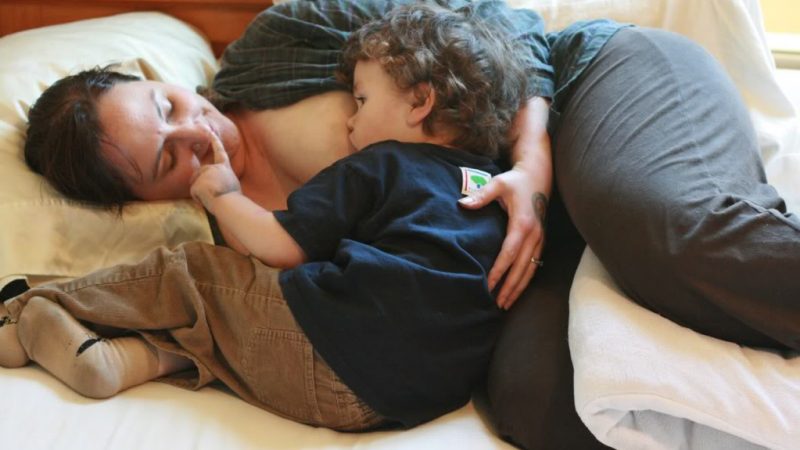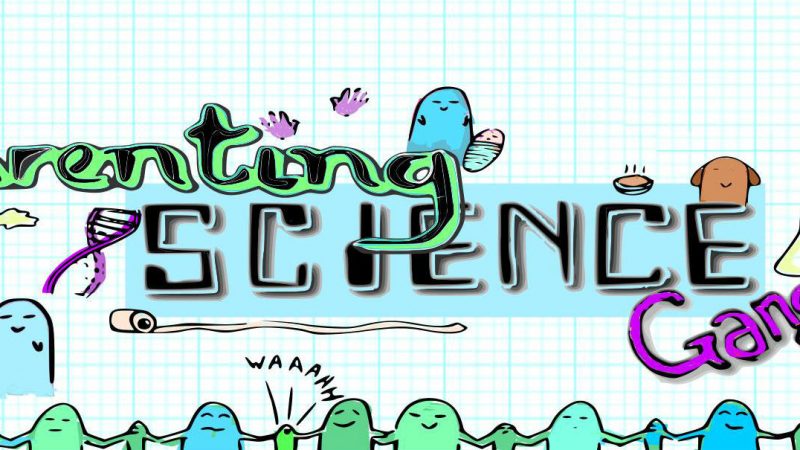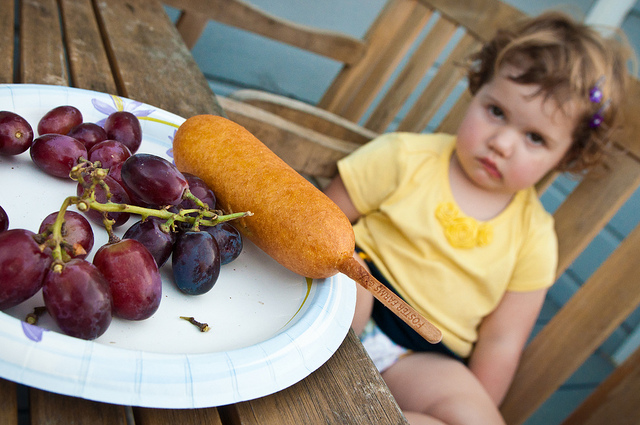
Democracy in action. So many questions! – BOBAB experiment update
“Sitting Up and Nursing” image kindly shared by Hobo Mama via Flickr CC licence 2.0
Our science gangs are forging ahead and the Breastfeeding Older Babies and Beyond – Parenting Science Gang (BOBAB-PSG) are, excitingly, getting close to starting the experiment stage of their project.
The group whittled down an intimidating 56 parenting questions to just 14 in one fell swoop, by voting to focus specifically on breastfeeding older children rather than breastfeeding in general or other parenting questions.
Two questions on breastfeeding and tooth decay were then hurriedly put back in when a study published just last week concluded that breast milk is linked with cavities specifically in children over 2 years old. Cue multiple media outlets stating that the study advised to give up breastfeeding at 2, when THE STUDY DIDN’T SAY THAT. (Sorry was I shouting?)
The group are voting now to find five questions to look at in more detail – once we’ve done that, we’ll vote again for the single question that we will ultimately design and run experiments on.
The first question to examine in a bit more detail has already been selected, and it is …
<drum roll> …
What is the composition of breastmilk produced for toddlers / older children?
– What’s the nutritional content? What about microbes?
– How does it compare to milk for infants?
– How does it change over time?
OK, it’s several questions in one! Our aim this week is to find out which of these questions could BOBAB-PSG feasibly study?
We’re busy collecting evidence and speaking to breastfeeding science experts. Dr Amy Brown, Associate Professor of Public Health, Policy and Social Sciences at Swansea University expanded our knowledge for several days with an excellent stint in the group as our first Expert in Residence. Dr Natalie Shenker, Co-Founder of The Hearts Milk Bank and also Honorary Research Associate, Faculty of Medicine, Department of Surgery & Cancer at Imperial College London joined us on Monday night to prove she has the fastest fingers in cyberspace as she kept up with our many, many questions in our most popular online Q&A to date: What’s in breast milk and can we share it?
We’re finding there’s not a lot of research out there on breastfeeding children over 2 years.
Nathalie confirmed this: “Without meaning to sound flippant, think of a research question [on breastfeeding older children], and I can almost guarantee it isn’t being done”.
So, with a whole world of breastfeeding science out there for us to explore, which single question will we choose? It will be one of these…
BOBAB-PSG Questions: July 2017
- BFing duration – if you know other mothers are feeding older children, does this affect how long you feed for?
- Money spent on breastfeeding support vs. BFing duration – what’s the relationship?
- When leaving you to enter the world of nursery, what difference is there between the ’emotional’ brain of a breastfed child and that of one who isn’t breastfed anymore.
- Are there any IQ differences between teens or adults who were breastfeed until 3,4,5, or 5 and those who weren’t? Do these kids stand out somehow?
- TOP QUESTION – WEEK TWO: Regarding the health and immunological perspective, is there a difference later in life for people who were breastfed longer compared to a shorter period or not at all or combi fed?
- Can breastfeeding past 12 months cause some mums to become a bit worn down and susceptible to illnesses? Does weight loss also become an issue for some?
- Emotional well-being: For 3-5 year olds, how do the hormones in breastmilk affect the child’s development in terms of calming when stressed and over-tired or in pain? Does breastmilk help them function better, and contribute to emotional wellbeing?
- What immune factors are in breastmilk made for older children? Do they vary depending on the health / illness of the toddler?
- What are the benefits of breastfeeding to older children (3,4,5 …)
- TOP QUESTION – WEEK ONE: What is the composition of breastmilk produced for toddlers / older children?
– What’s the nutritional content? What about microbes?
– How does it compare to milk for infants?
– How does it change over time
- Tandem feeding children of different ages – is there any difference in the milk each child receives? If so, what is it?
- If the mum of a feeding toddler is also wet nursing a young baby, does the milk composition adapt to the younger baby? We know it probably does when the mum gives birth to a sibling, but it would be interesting to see if it’s about the hormones in pregnancy or something to do with receptor glands on the nipple.
- Is it biologically ‘normal’ to feed throughout pregnancy and then to tandem feed?
- What factors cause a child to self-wean? Why does self-weaning occur at different ages for different children?
- Does breastfeeding – and in particular night feeding really cause tooth decay in children aged 2 and over? (As a recent study concluded?)
- Tooth decay: Can breastfeeding reduce or eradicate the bacteria Strep Mutans (responsible for much tooth decay)? Breastmilk contains Lactoferrin, a protein that has been shown to attack and reduce the presence of Strep Mutans. If a child was to pick up Strep Mutans could it be eradicated or minimised through breastmilk? Also what quantities of breastmilk would be needed?
Watch this space to find out which one we pick – and for updates from the other three groups.
Curious to know more about the project? Begin at the beginning.


